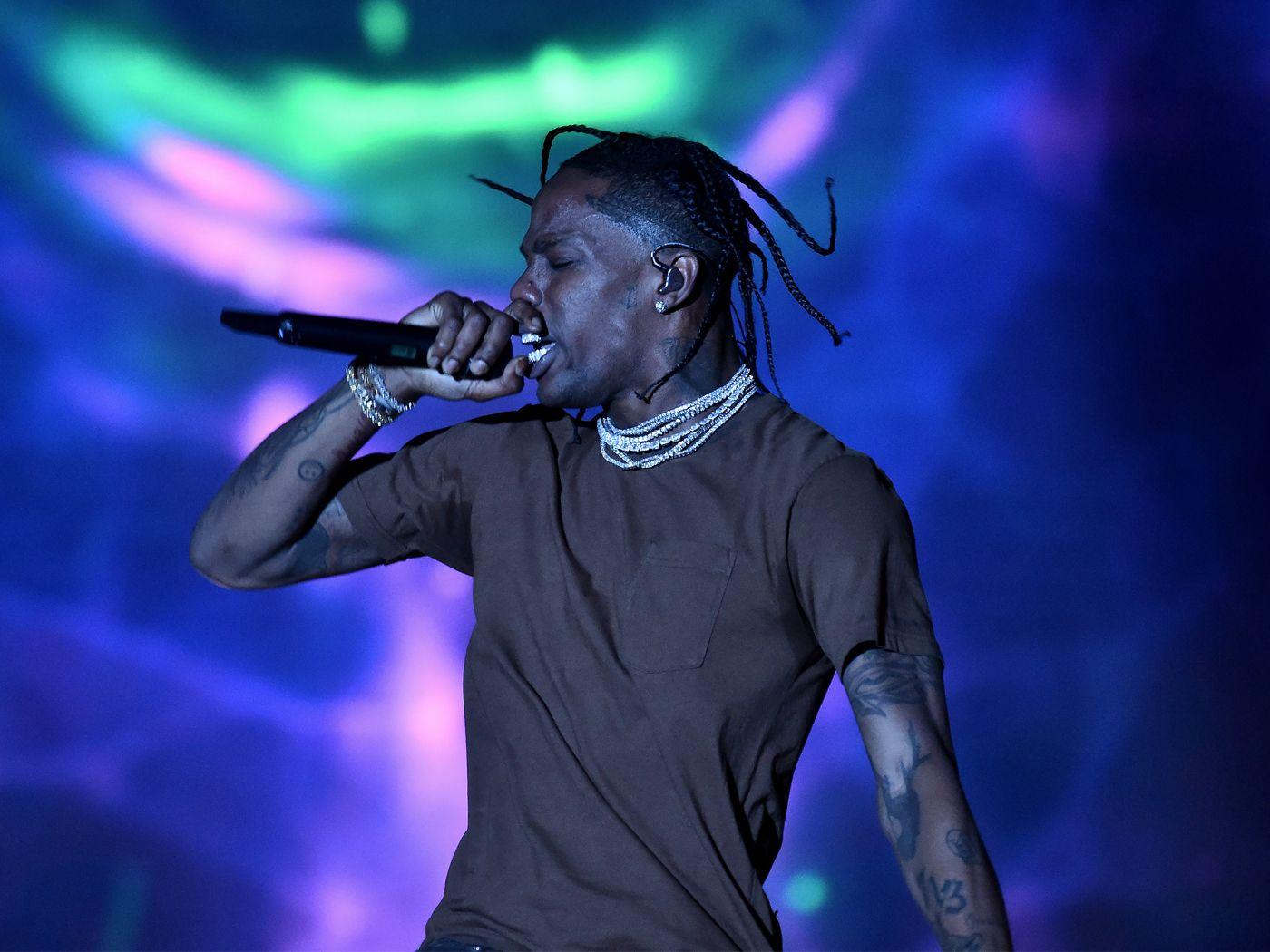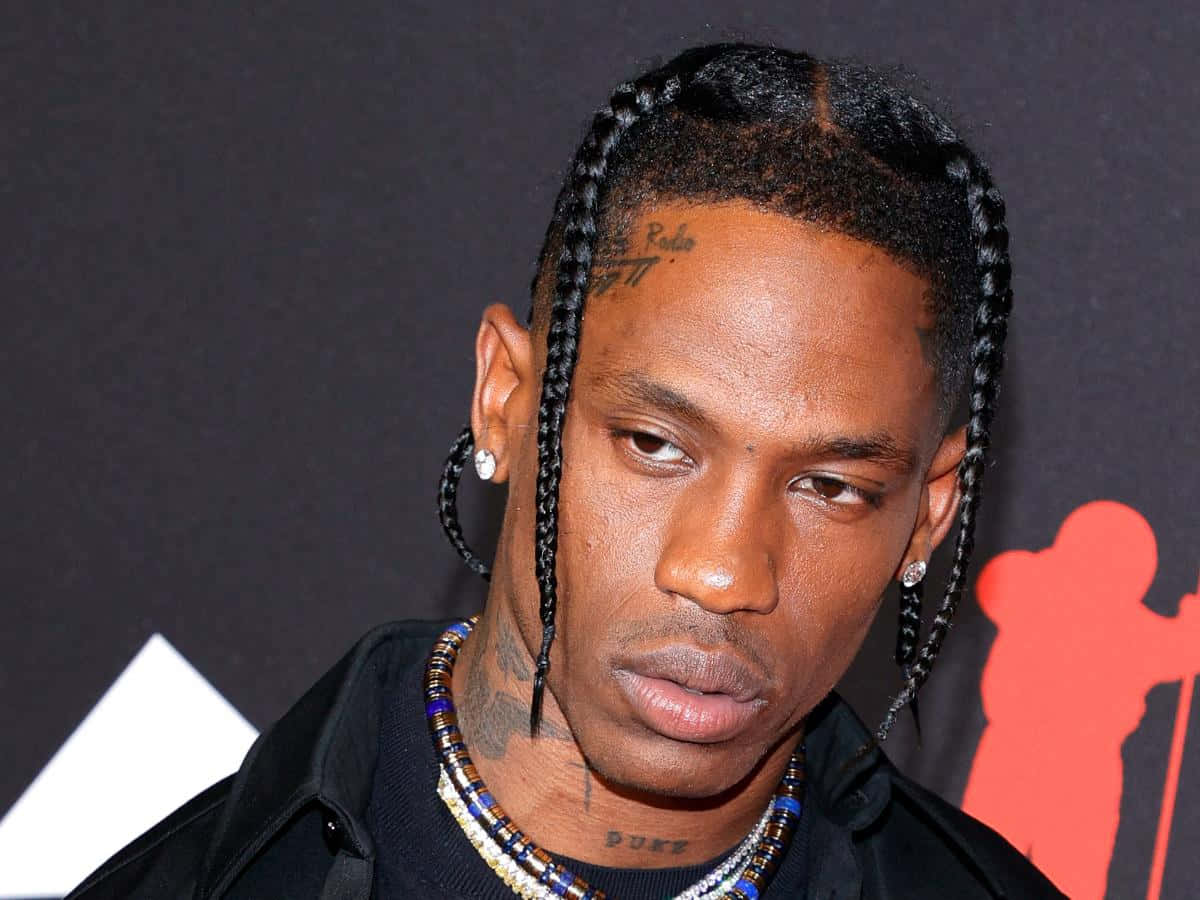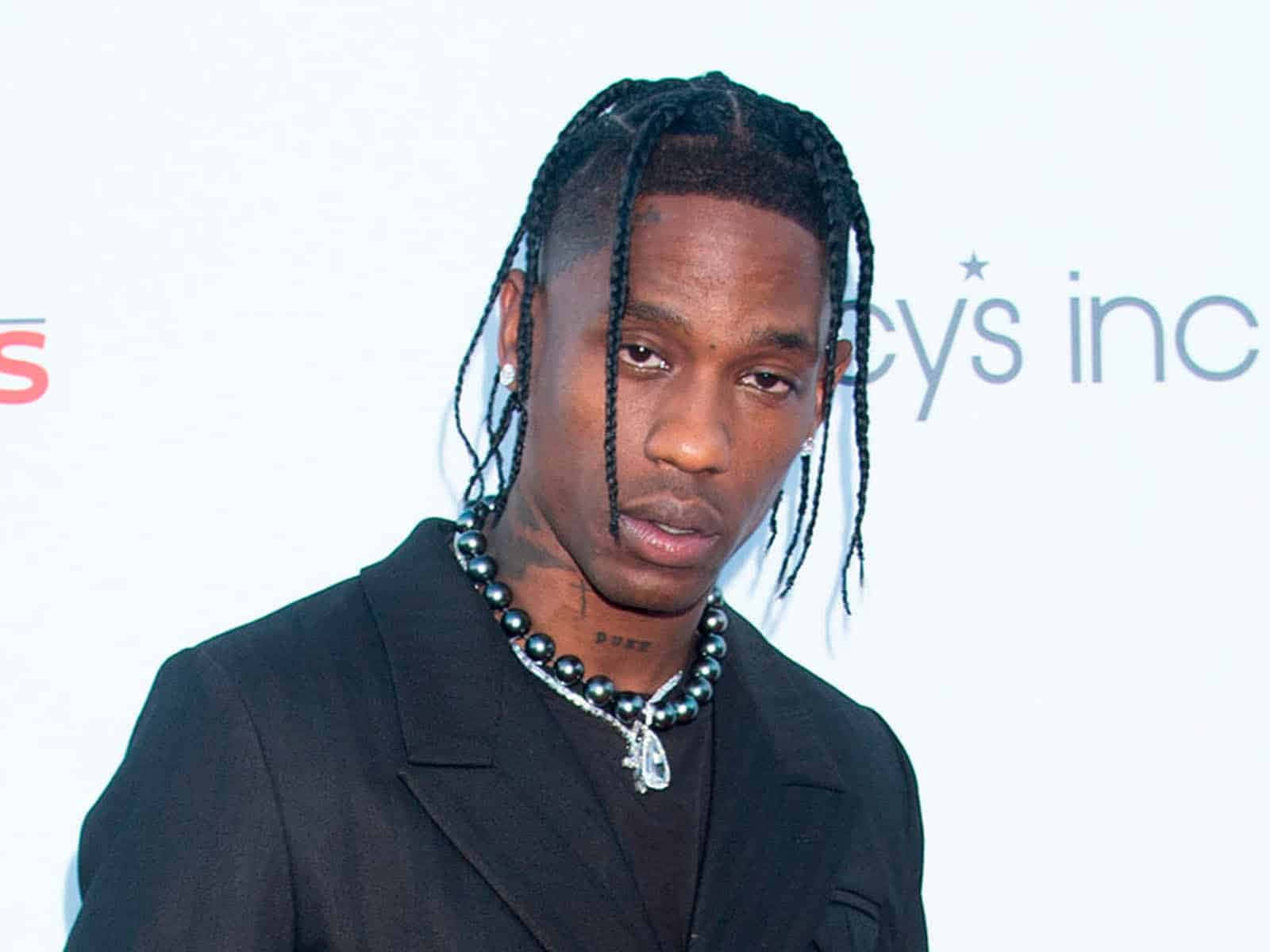Have you ever found yourself curious about the lives of public figures, perhaps wondering about their unique ways of seeing the world? It's a common thing, really. When people search for "Travis," they often come across a whole bunch of different contexts, like, you know, discussions about getting an Xbox setup just right, or maybe even forum chatter about a "flat Travis project." You might even find old concert details for a band called Travis, or notes about a game developer named Travis Baldree and his work on Torchlight. It's interesting how many different "Travis" references pop up, isn't it?
So, it's almost natural for people to wonder about various aspects of famous personalities. This article, however, is going to focus on a very specific "Travis" – the globally recognized music artist, Travis Scott. We're looking into a question that pops up quite a bit online: is Travis Scott neurodivergent? It's a topic that sparks a lot of discussion among fans and the wider public, and there are reasons why people might even ask about it.
We'll explore what neurodivergence means, why these kinds of questions come up about public figures, and what we actually know. It's a chance to really think about how we talk about neurodiversity and famous people, and to understand that speculating from afar is, well, just that: speculation. We'll try to keep things clear and helpful, too.
Table of Contents
- Who is Travis Scott? A Quick Look
- What Does "Neurodivergent" Really Mean?
- The Public Conversation: Is Travis Scott Neurodivergent?
- Why Speculation Happens: Understanding Neurodiversity in Public Figures
- Supporting Neurodiversity: What We Can Do
- Frequently Asked Questions About Travis Scott and Neurodiversity
Who is Travis Scott? A Quick Look
Travis Scott, whose real name is Jacques Bermon Webster II, is a pretty big deal in the music world, you know. He's an American rapper, singer, songwriter, and record producer. He's known for his very unique sound, which often mixes hip-hop with a bit of trap and even some psychedelic elements. His concerts, too, are kind of legendary for their high energy and immersive experiences. People really get into them, it's almost like a whole event.
He first started getting a lot of attention in the early 2010s, and his career has just kept growing since then. Albums like "Rodeo," "Birds in the Trap Sing McKnight," and especially "Astroworld" have been super successful, earning him a huge fan base all over the globe. He's also worked with many other big names in music, and that's really helped him become a household name, too. He's definitely made a mark on popular culture, that's for sure.
Personal Details & Bio Data
Here's a quick overview of some basic facts about Travis Scott, just so we're all on the same page.
| Full Name | Jacques Bermon Webster II |
| Known As | Travis Scott |
| Born | April 30, 1991 |
| Age (as of 2024) | 33 years old |
| Birthplace | Houston, Texas, U.S. |
| Occupation | Rapper, Singer, Songwriter, Record Producer |
| Genre | Hip hop, trap, psychedelic hip hop |
| Years Active | 2008–present |
What Does "Neurodivergent" Really Mean?
So, what exactly does "neurodivergent" mean? It's a term that describes people whose brains work differently from what's considered typical. It's not about being "better" or "worse," just different. Think of it like this: there's a wide range of ways people think, learn, and process information, and neurodiversity simply recognizes that natural variation in human brains. It's a pretty broad idea, actually.
Conditions like autism spectrum disorder (ASD), ADHD (Attention-Deficit/Hyperactivity Disorder), dyslexia, and Tourette's syndrome are all examples of neurodivergence. People who are neurodivergent might experience the world in ways that are, well, unique. This could mean they have different strengths, like amazing focus on certain topics, or a really creative way of solving problems. It might also mean they face challenges in areas where neurotypical people might not, for instance, with social cues or sensory input.
The term "neurodivergent" is part of the "neurodiversity movement." This movement really pushes for acceptance and inclusion of all brain types. It suggests that these differences are natural and valuable, rather than something that needs to be "fixed." It's about celebrating the many ways human minds can work, and recognizing that different perspectives can enrich society, too. It's a pretty powerful idea, when you think about it.
The Public Conversation: Is Travis Scott Neurodivergent?
Now, about the main question: is Travis Scott neurodivergent? It's something that gets asked online quite a bit, and you can find discussions on forums and social media. People, you know, sometimes observe behaviors or characteristics in public figures and then start to wonder if they might align with neurodivergent traits. This is just a natural part of how people try to make sense of the world, and other people, too.
However, it's really important to say this clearly: there has been no public statement from Travis Scott himself, or his representatives, indicating that he is neurodivergent. There's no official diagnosis that's been shared with the public. Any discussions you see online are purely based on speculation, and that's a key point to remember. It's just people wondering, really.
Why does this speculation happen, though? Well, sometimes it comes from observing how a celebrity acts in interviews, or their stage presence, or even how they interact with fans. People might pick up on things that seem a bit different from what they expect, and then, you know, their minds start to connect those observations to ideas about neurodiversity. It's a bit like trying to solve a puzzle with only a few pieces, I guess. Without a professional assessment, or a personal disclosure, it's just guesswork, really.
It's also worth noting that artists, especially those in creative fields like music, often express themselves in ways that are, you know, very unique and unconventional. What one person might see as a "trait" of neurodivergence, another might just see as part of an artist's personal style or creative genius. So, it's easy to misinterpret things, too. It’s important to respect a person's privacy and remember that we don't know what's going on behind the scenes.
Why Speculation Happens: Understanding Neurodiversity in Public Figures
The interest in whether a celebrity like Travis Scott might be neurodivergent is, in a way, part of a bigger trend. More and more people are becoming aware of neurodiversity, and that's a good thing. As this awareness grows, people start to look at the world, and the people in it, through a new lens. They might notice traits in others that they now recognize as possibly being related to neurodivergence, which is pretty interesting.
When it comes to public figures, this interest can get amplified. Celebrities are constantly in the public eye, and every little gesture, every mannerism, can be observed and, you know, analyzed by millions. This constant scrutiny means that any unique way of behaving or communicating might stand out. It's almost like being under a microscope, isn't it?
There's also something called "confirmation bias" at play here. If someone already has an idea in their head, they might, you know, unconsciously look for things that support that idea. So, if someone wonders "is Travis Scott neurodivergent," they might then focus on specific moments or behaviors that seem to fit that theory, while overlooking everything else. It's just how our brains tend to work, sometimes.
It's crucial to remember that observing someone from a distance, even if they are a public figure, doesn't give us enough information to make any kind of informed judgment about their neurological profile. Only a qualified medical professional can diagnose neurodivergent conditions, and they do this through a comprehensive assessment, not just by watching someone on stage or in interviews. It's a pretty complex process, actually.
Furthermore, speculating about someone's private health information, even with good intentions, can be a bit problematic. It can contribute to stereotypes or put unfair pressure on individuals to disclose personal details they might not want to share. It's always better to focus on promoting general understanding and acceptance of neurodiversity rather than, you know, trying to diagnose people from afar. We should respect people's privacy, that's really important.
Supporting Neurodiversity: What We Can Do
Instead of speculating about whether specific individuals like Travis Scott are neurodivergent, a more helpful approach is to support the broader neurodiversity movement. This means working towards a world where all brain types are valued and understood. It's about creating spaces where everyone can feel accepted and can thrive, which is a pretty good goal, too.
One way we can do this is by educating ourselves about what neurodiversity truly means. Learning about conditions like autism or ADHD, from reliable sources, helps us to better understand the experiences of neurodivergent people. This kind of knowledge can really break down old stereotypes and reduce stigma, you know. You can learn more about neurodiversity and advocacy on sites dedicated to the topic, which is a great place to start.
Another thing we can do is to use inclusive language. When we talk about neurodiversity, it's important to use respectful terms and avoid language that might be, you know, outdated or hurtful. Focusing on person-first language (e.g., "a person with autism" rather than "an autistic person," though some in the community prefer identity-first language, so it's good to listen to individual preferences) is a simple step that can make a big difference. It shows we care about how people are described, which is pretty vital.
We can also advocate for more inclusive environments in schools, workplaces, and communities. This means pushing for accommodations that help neurodivergent individuals succeed, and for a general culture of acceptance. It's about making sure that everyone has a fair chance to participate and contribute, and that's something we can all get behind. It really benefits everyone, in a way.
Ultimately, the conversation around "is Travis Scott neurodivergent" can be a starting point for a much larger, more meaningful discussion about neurodiversity in general. It's a chance to move beyond mere curiosity about celebrities and towards a deeper appreciation for the diverse ways human minds work. So, we can use these moments to learn and grow, and that's a pretty positive outcome, too. We should always aim for that, actually.
We can, you know, also encourage a culture where people feel safe and comfortable being themselves, without fear of judgment or unfair labels. This means celebrating unique strengths and understanding that differences are not deficits. It's about building a more compassionate world, and that's something we can all contribute to, even in small ways. It's a continuous effort, really, but a very worthwhile one.
To really foster a supportive environment, it's also important to remember that every person, whether famous or not, has a right to their privacy regarding personal health matters. Speculating about someone's neurological makeup without their consent or public disclosure isn't really helpful, and it can actually be harmful. Instead, we can focus on being allies and advocates for the neurodivergent community as a whole, which is a much more constructive path. It's about being kind and thoughtful, you know, to everyone.
Think about how we can support organizations that are doing great work in this area, too. Many groups are dedicated to research, advocacy, and providing resources for neurodivergent individuals and their families. Supporting them, perhaps through donations or by volunteering your time, can make a real difference. It's a very tangible way to show your commitment to neurodiversity inclusion, and that's pretty powerful.
Remember, the goal is not to categorize people, but to understand and appreciate the full spectrum of human experience. This includes acknowledging that some brains are wired differently, and that those differences bring unique perspectives and talents to our world. So, it's about embracing diversity in its truest sense, and that's something we should always strive for. It's a continuous learning process, but a rewarding one, too.
We can also, you know, challenge misconceptions when we hear them. If someone makes an insensitive comment or spreads misinformation about neurodiversity, taking a moment to gently correct them can be very impactful. It helps to shape public discourse in a more informed and compassionate way. Every little bit helps to build a better understanding, actually.
And then, there's the simple act of listening. If a neurodivergent person shares their experiences, truly listening to what they say, without judgment, is incredibly valuable. Their lived experiences are the most important source of information about neurodiversity, after all. It's about giving space for their voices to be heard, and that's a pretty fundamental part of being supportive, too. It's a matter of respect, really.
So, while the question "is Travis Scott neurodivergent" might spark initial curiosity, it can lead us to a much richer conversation about acceptance, understanding, and the beauty of human variation. It's a chance to grow our collective empathy, and that's a pretty wonderful thing, isn't it? We can learn a lot from these discussions, actually.
For more insights, you might want to link to this page Understanding Neurodiversity on our site, which offers a lot of helpful information. Also, learn more about our mission to promote understanding on our site. These resources can really help deepen your knowledge, too.
Frequently Asked Questions About Travis Scott and Neurodiversity
Here are some common questions people ask when they're curious about this topic, you know, to try and get some clarity.
Has Travis Scott ever spoken about neurodiversity?
As of now, Travis Scott has not made any public statements or disclosures about being neurodivergent. There's been no official word from him or his team on this matter, so any discussions you see are, you know, just speculation. It's pretty much a private thing, if it were the case.
What does neurodivergent mean in simple terms?
In simple terms, "neurodivergent" means a person's brain works differently from what's considered typical. It's a natural variation in how people think, learn, and process information. Conditions like autism or ADHD are examples of neurodivergence, but it's a very broad idea. It's about brain differences, not deficits, really.
Are there common traits associated with neurodivergence?
Yes, there are often common traits associated with various forms of neurodivergence, but they vary widely from person to person. For example, some autistic people might have very focused interests or unique ways of communicating. People with ADHD might have differences in attention or energy levels. However, these are general patterns, and every neurodivergent person is, you know, a unique individual. It's a spectrum, actually, so it looks different for everyone.



Detail Author:
- Name : Natalie Jacobson
- Username : fred03
- Email : quitzon.queenie@gmail.com
- Birthdate : 1971-10-01
- Address : 46844 Daisy Fork Apt. 178 Lake Ravenland, AZ 98659-5374
- Phone : +1-276-494-1339
- Company : McKenzie-Grimes
- Job : Glazier
- Bio : Sed quibusdam est commodi. Aut impedit dolor et neque iste est aut ex. Suscipit consequatur optio est id reprehenderit voluptatem maxime necessitatibus.
Socials
twitter:
- url : https://twitter.com/vallie8897
- username : vallie8897
- bio : Doloribus in quis maxime esse voluptates ipsa. Qui quas sit ea dolores.
- followers : 329
- following : 2588
facebook:
- url : https://facebook.com/vallie_torphy
- username : vallie_torphy
- bio : Hic velit est minus et cumque.
- followers : 430
- following : 1461
tiktok:
- url : https://tiktok.com/@vallietorphy
- username : vallietorphy
- bio : Aspernatur neque quibusdam nam eum.
- followers : 695
- following : 1884
instagram:
- url : https://instagram.com/vallie_torphy
- username : vallie_torphy
- bio : Itaque voluptatem error modi officia a inventore quia. Et expedita ut atque perferendis.
- followers : 573
- following : 1154